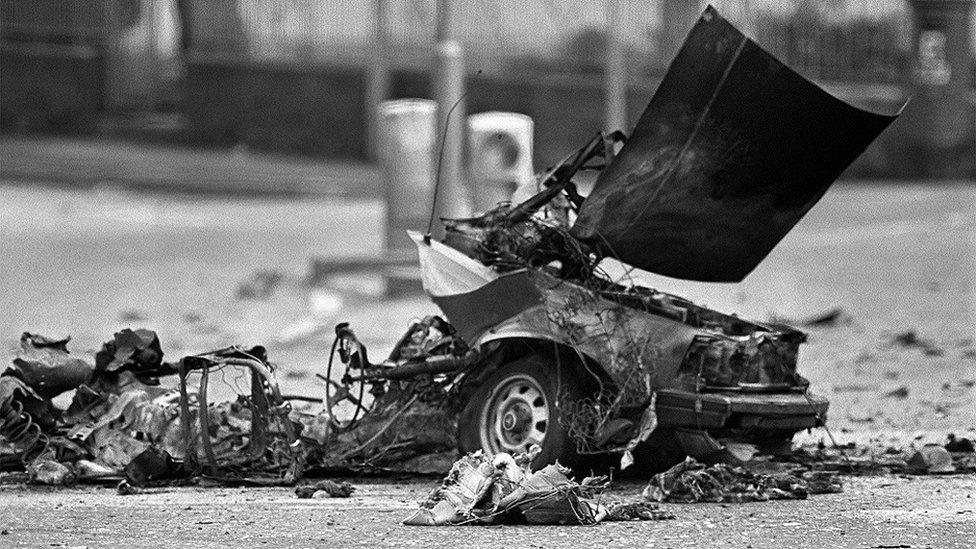Troubles legacy: Some senior Presbyterian church members back plan
- Published
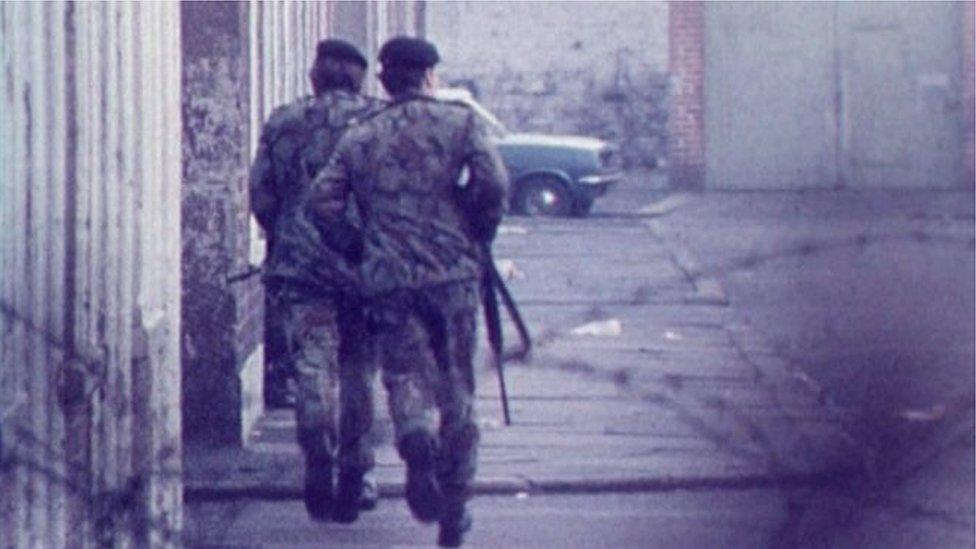
A statute of limitations would end all prosecutions in Troubles-related cases
A number of senior members of the Presbyterian Church have spoken out in support of the government's plan to end all Troubles-related prosecutions.
They include a retired police officer - now a church elder - a Presbyterian minister whose father was killed by the IRA, and ex-moderator Rev John Dunlop.
The church's official position is against the government's legacy plan.
The plan, announced in July, is strongly opposed by all Northern Ireland parties and victims' groups.
Under it, Troubles-era investigations, inquests and civil actions would be halted and there would be no further prosecutions.
'We have not given up on justice'
On Wednesday, Minister of State Conor Burns said the Westminster government was prepared to listen to alternative proposals on dealing with Troubles legacy cases.
But he suggested Stormont's political parties should find a consensus first.
The legacy issue was debated on the third day of the Presbyterian Church's general assembly in Belfast.
Reverend Michael Davidson, whose father Gerald was an RUC officer killed by the IRA in 1979, said that rather than spending millions of pounds investigating the past it was better to look to the future.
He said: "Let me be clear, we have not given up on justice. I do not believe in any way we are dishonouring my father's memory. We still believe passionately in justice but believe that only God can provide us with that justice."
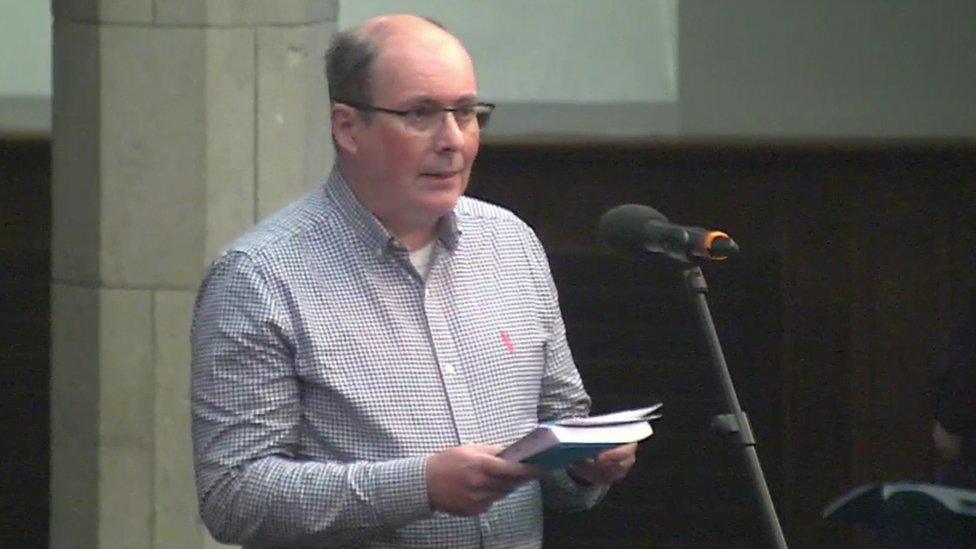
Rev Michael Davidson's father was killed by the IRA
Rev Davidson, from Railway Street Presbyterian Church in Lisburn, said the legacy plan "at least in part, offer the only honest and realistic way forward at this point in time".
"I also believe it is self-evident that any new investigations will focus disproportionately on the actions of the security forces because the state kept records and the paramilitaries did not," he said.
Retired police officer Donald Milliken, who is an elder at a Presbyterian Church in south Belfast, said he saw people go through "hell" during the Troubles but feels it is time to look forward not back.
He said: "There must be an end. Yes, people suffer, and will continue to suffer, but there must be an end if there's going to be healing."
He said the legacy issue must be approached with prayer and thankfulness "that some of us have come through it".
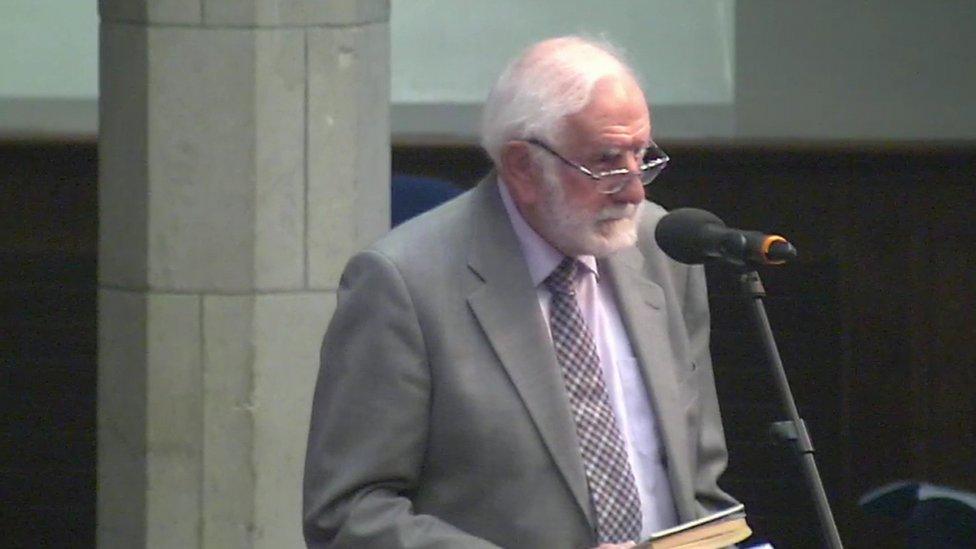
Rev John Dunlop says the truth is mostly "inaccessible"
Rev Dunlop, who was moderator of the church in 1992, said a realistic approach to the past must be taken.
He said: "The fact is that the truth in most cases is inaccessible, and justice is unavailable, because who know will not say, and I think that includes all the paramilitary groups.
"The British Government will not say all that they know nor will the Irish government say all that they know. They will tell you a little, but they will not tell you everything."
In spite of differences of opinion on the best policy, a motion was passed encouraging the church to keep engaging on legacy matters.
Official position unchanged
A spokesman for the church later re-iterated its official position.
He said: "The Presbyterian Church in Ireland has consistently expressed its concerns at the UK government's intention to move away from the four key principles of the Stormont House Agreement, especially the right of victims and survivors to seek due process and justice in the courts.
"The church believes that to remove the opportunity to seek justice is to remove hope for the victims and survivors who wish to pursue it.
"It may be that being able to show 'on the balance of probabilities', rather than proving 'beyond reasonable doubt', could provide some measure of healing to those who seek it."
Related topics
- Published6 October 2021
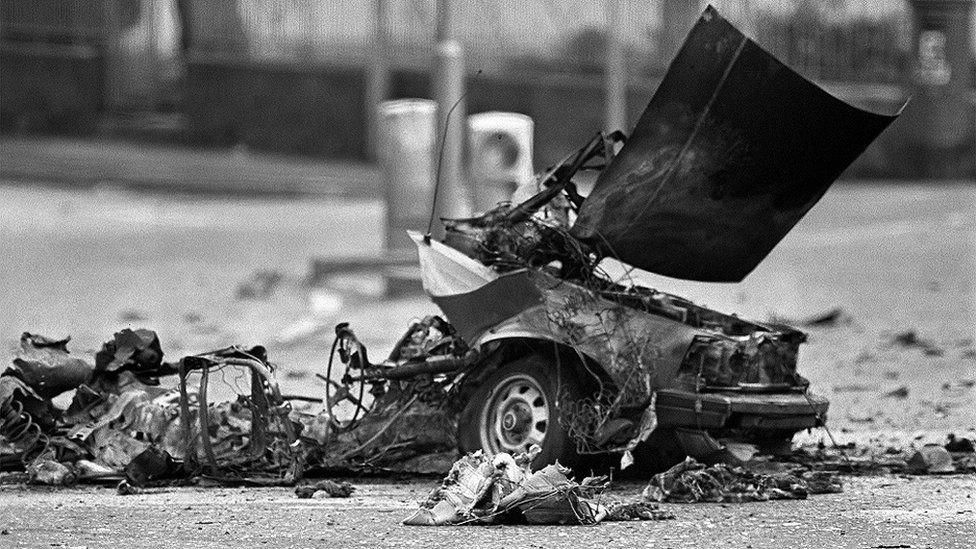
- Published29 September 2021
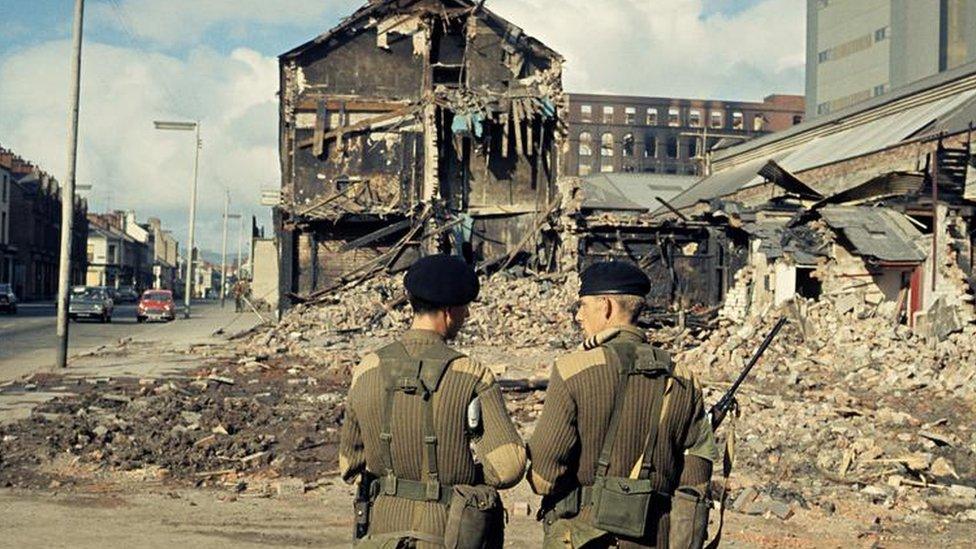
- Published23 September 2021
